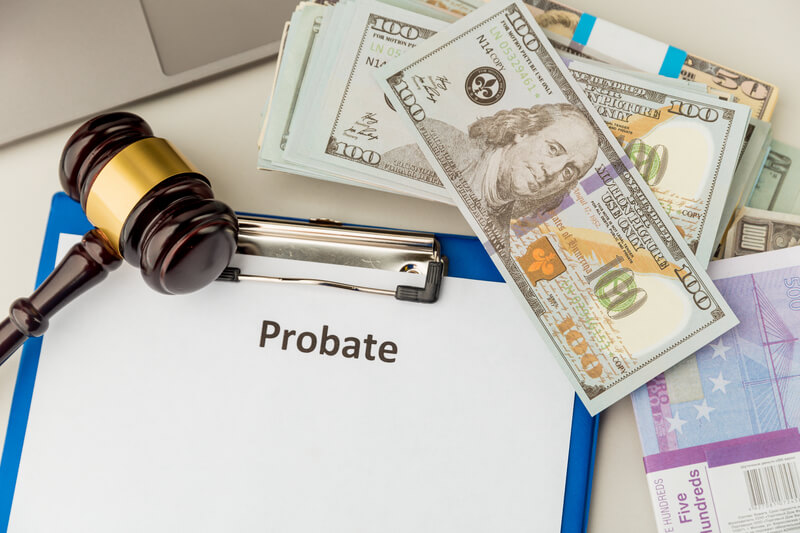Are you concerned about the future of your estate for your loved ones? Curious about how you can avoid probate?
Countless individuals grapple with these same questions. Thankfully, there are strategies to navigate these issues effectively.
This post provides a comprehensive understanding of the probate process and how to limit its impact. It is your opportunity to equip yourself with the knowledge to make wise decisions. So, learn about the law and save your loved ones from unnecessary legal hassles with us today.
Understanding Probate
The probate process involves the following general steps:
- Authenticating a will
- Cataloging property and assets
- Having the estate appraised
- Paying off any outstanding debts or taxes
- Distributing the remainder to the beneficiaries
The executor named in the will or appointed by the court starts the process by filing a petition. It goes to the court with jurisdiction where the decedent lived. Then, the court will validate the document and authorize the administrator to get started. The timeline varies, but this legal process can take several months to a few years to finish.
However, many issues can arise that increase the complexity. This legal wrangling can be time-consuming and costly. The result is that legal fees, court costs, and other expenses can diminish the estate’s value quickly.
Strategies for Avoiding Probate
Joint Ownership
When two or more individuals own property together, they typically do so as joint tenants with rights of survivorship. This form of ownership means the property automatically passes to the surviving owner without going through probate. The transfer of ownership is instantaneous upon death and doesn’t require any court intervention. Therefore, it can simplify the process, provide immediate access to the assets, and save time and legal expenses.
However, consider joint ownership carefully. It can lead to potential complications such as disagreements among owners, exposure to creditors, and tax implications.
Payable-on-Death Designations for Bank Accounts
POD accounts allow the account owner to name a beneficiary who will receive the funds upon their death. This setup bypasses probate because the account balance immediately transfers to the beneficiary. Accordingly, the beneficiary has no rights to the funds as long as the original account holder is alive.
As such, POD designations offer an uncomplicated way to deliver assets directly to beneficiaries. Nonetheless, like all estate planning tools, it’s crucial to consider the broader financial and legal considerations.
Transfer-on-Death Deeds for Real Estate
Not all states allow this option, but some property owners can record a TOD deed. This document names a beneficiary to inherit their property directly. The property owner maintains control during their lifetime and can sell, change the beneficiary, or revoke it anytime. Regardless, the property could be subject to estate recovery if the decedent received Medicaid.
Living Trusts
A living trust is a legal entity created by an individual during their lifetime. The grantor transfers ownership of their assets into it and typically serves as the initial trustee. They also designate a successor who will manage the trust upon their death. When the grantor dies, there is a direct distribution to beneficiaries.
Importantly, this process is private and generally faster than probate. Moreover, a living trust can include detailed instructions for asset management in the event of incapacitation. Nevertheless, creating a living trust can be more complex and it has upfront costs. It is also different than a traditional will, therefore it’s worth knowing the difference.
Gifting Assets
Gifting assets reduces the size of your estate and could simplify or even eliminate the need for probate. After all, the gifted assets become the immediate property of the recipient. This means they are not subject to probate proceedings and can be a quicker way for beneficiaries to access these assets.
There are, however, limits to how much you can gift without tax implications. Additionally, direct gifting relinquishes your control over the assets. These factors make it important to consider your financial needs and potential changes in your circumstances. It’s also worth researching what is and isn’t an asset to probate.
Legal Considerations
Some states offer simplified or “summary” probate processes for smaller estates. Furthermore, they may allow certain types of property to bypass the process altogether. Hence, the effectiveness of different avoidance strategies can vary greatly. Its wise to learn about what you can do to solve some more common probate challenges.
While assets transferred outside of probate avoid probate fees, they may still be subject to estate taxes. Consequently, it is crucial to understand the value of everything you own and control. Proper estate planning can help minimize the burden. But state tax law is complex and continually evolving, underscoring the importance of seeking professional legal help.
Consult with an Estate Planning Attorney
You can ensure that your loved ones receive your estate according to your wishes. Furthermore, you can do so while minimizing the time, cost, and stress involved.
Don’t leave your estate to chance. You’ve worked hard to build and maintain them. Reach out today and ask for a referral to a local estate planning lawyer who specializes in estate planning. You can complete our online form or call us at (866) 345-6784.

